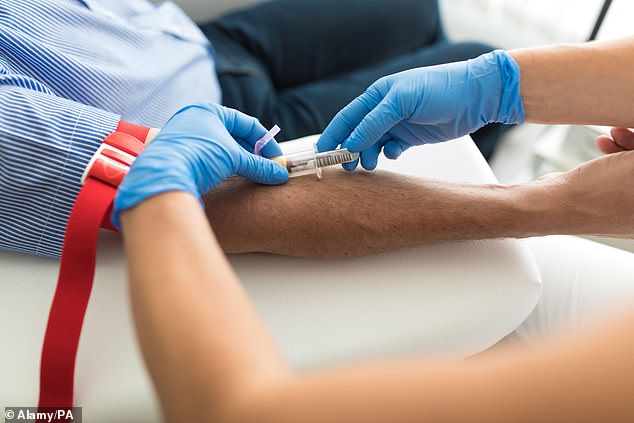Annual blood tests for the earliest signs of cancer could prevent around half of cases reaching an advanced stage, research has suggested.
Scientists are currently trying to establish if simple blood tests are effective in picking up cancer before symptoms appear, and whether they improve survival. The NHS is currently trialling such tests.
Researchers say screening people annually – or every two years – could boost early detection and stop cancers reaching the stage where treatments fail.
The experts trialled a multi-cancer blood test on a group of people aged between 50 and 79.
They used both fast-growing tumours (which remain at stage one for two for up to four years before progressing); and fast aggressive tumours (which remain at stage one for only one to two years before advancing).
Yearly screening under the fast tumour growth scenario led to a higher number of diagnoses than usual care – 370 more cancer signs were detected per year per 100,000 people screened.
There were also 49 per cent fewer late-stage diagnoses and 21 per cent fewer deaths within five years than patients receiving usual care.
Screening every two years was not as effective as annual screening – 292 more cancer signs were picked up per year per 100,000 people screened compared to usual care.

A simple annual blood tests for the earliest signs of cancer could prevent around half of cases reaching an advanced stage, new research has suggested (Stock image)

Experts found yearly screening under the fast tumour growth scenario led to a higher number of diagnoses than usual care (Stock image)
There were also 39 per cent fewer late-stage diagnoses and 17 per cent fewer deaths within five years.
The researchers, writing in the journal BMJ Open, concluded that a blood test every one or two years has ‘the potential to intercept 31-49 per cent of cancers at stage one-two that would otherwise present at stage three-four’.
Study author Peter Sasieni, professor of cancer epidemiology at Queen Mary University of London, who has a lead role on a trial known as ‘Galleri’, said: ‘I am very excited about the science behind these tests, but we need to ensure that the technological game-changer translates to clinical benefit.
‘That is why we are conducting a huge randomised controlled trial to see whether the prediction made by this modelling is reasonably accurate.
‘The advances in molecular biology and artificial intelligence means that we are now able to find tiny fragments of many cancers in a small blood sample. That is incredible.’
Professor Sasieni said he hopes that ‘by 2032, there should be sufficient evidence to say categorically how many lives can be saved by annual screening’.
He added: ‘That could lead to national rollout being completed within the next ten years.’
He suggested the NHS should be able to negotiate ‘a much better price per test’ with manufacturers for annual screening rather than every two years.
Last month, it was announced the NHS would trial the ‘miONCO-Dx’ test with 8,000 patients.
The test works by examining a blood sample and uses AI to identify if cancer is present and, if so, where it is located in the body.
Initial tests show it can detect up to 12 common cancers.
This article was originally published by a www.dailymail.co.uk . Read the Original article here. .

